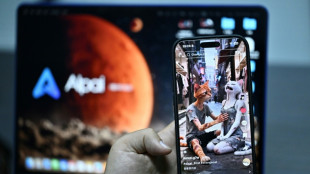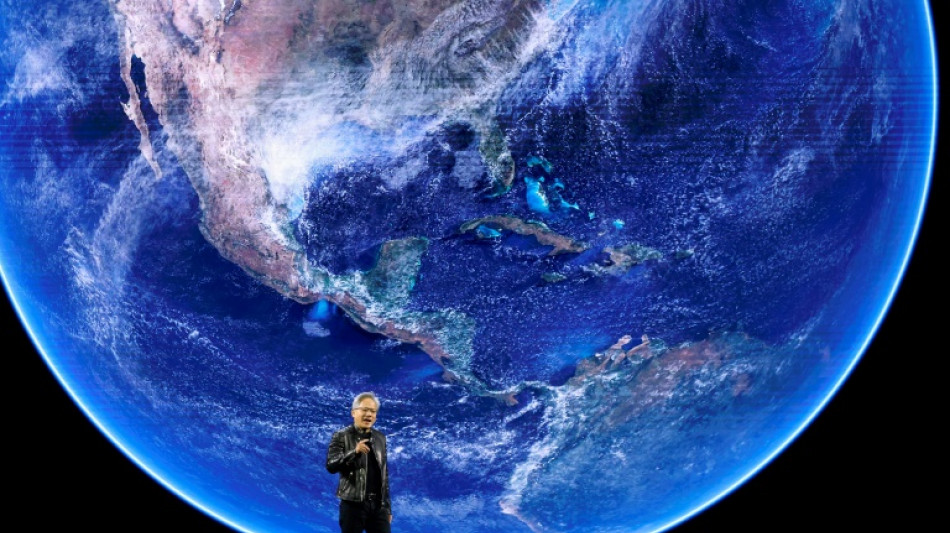
-
 Scandic Trust Group strengthens sales network with First Idea Consultant
Scandic Trust Group strengthens sales network with First Idea Consultant
-
Verstappen suffers setback in push for fifth title
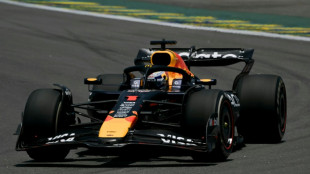
-
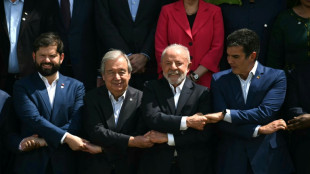 Earth cannot 'sustain' intensive fossil fuel use, Lula tells COP30
Earth cannot 'sustain' intensive fossil fuel use, Lula tells COP30
-
Wales boss Tandy expects Rees-Zammit to make bench impact against the Pumas
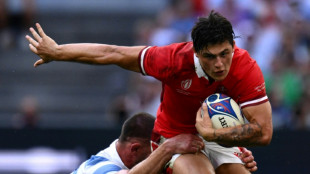
-
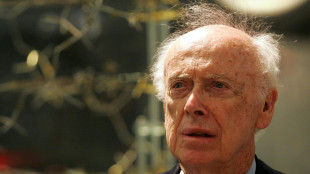 James Watson, Nobel prize-winning DNA pioneer, dead at 97
James Watson, Nobel prize-winning DNA pioneer, dead at 97
-
Sabalenka beats Anisimova in pulsating WTA Finals semi

-
 Iran unveils monument to ancient victory in show of post-war defiance
Iran unveils monument to ancient victory in show of post-war defiance
-
MLS Revolution name Mitrovic as hew head coach
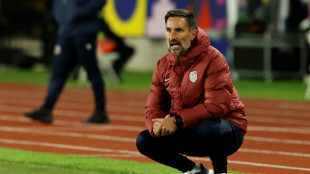
-
 Brazil court reaches majority to reject Bolsonaro appeal against jail term
Brazil court reaches majority to reject Bolsonaro appeal against jail term
-
Norris grabs pole for Brazilian Grand Prix sprint race
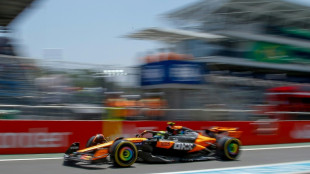
-
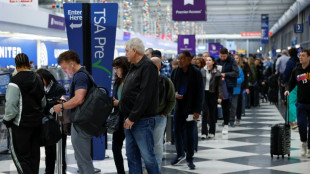 More than 1,200 flights cut across US in govt paralysis
More than 1,200 flights cut across US in govt paralysis
-
NFL Cowboys mourn death of defensive end Kneeland at 24
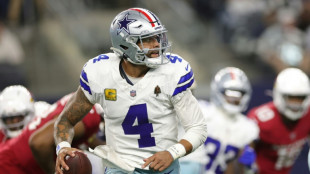
-
 At COP30, nations target the jet set with luxury flight tax
At COP30, nations target the jet set with luxury flight tax
-
Trump hosts Hungary's Orban, eyes Russian oil sanctions carve-out
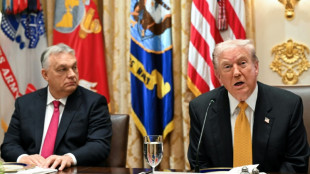
-
 All Blacks 'on edge' to preserve unbeaten Scotland run, says Savea
All Blacks 'on edge' to preserve unbeaten Scotland run, says Savea
-
Alpine say Colapinto contract about talent not money
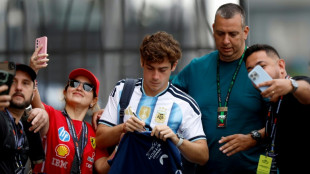
-
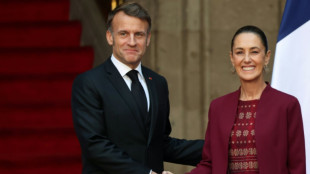 Return of centuries-old manuscripts key to France-Mexico talks
Return of centuries-old manuscripts key to France-Mexico talks
-
Byrne adamant Fiji no longer overawed by England

-
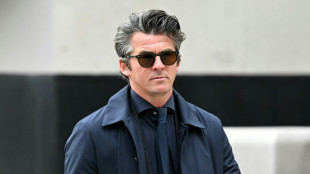 Ex-footballer Barton guilty over 'grossly offensive' X posts
Ex-footballer Barton guilty over 'grossly offensive' X posts
-
Key nominees for the 2026 Grammy Awards

-
 Brazil court mulls Bolsonaro appeal against jail term
Brazil court mulls Bolsonaro appeal against jail term
-
Rybakina sinks Pegula to reach WTA Finals title match

-
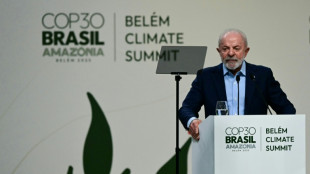 Earth 'can no longer sustain' intensive fossil fuel use, Lula tells COP30
Earth 'can no longer sustain' intensive fossil fuel use, Lula tells COP30
-
Kendrick Lamar leads Grammy noms with nine
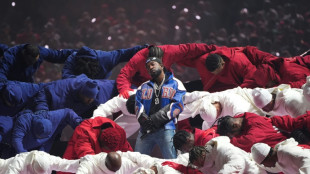
-
 Ex-British soldier fights extradition over Kenyan woman's murder
Ex-British soldier fights extradition over Kenyan woman's murder
-
Kolisi to hit Test century with his children watching

-
 Alex Marquez fastest in practice ahead of Portuguese MotoGP
Alex Marquez fastest in practice ahead of Portuguese MotoGP
-
Will 'war profiteer' Norway come to Ukraine's financial rescue?
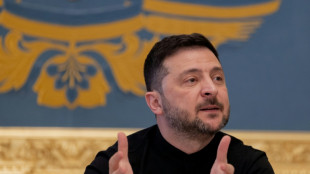
-
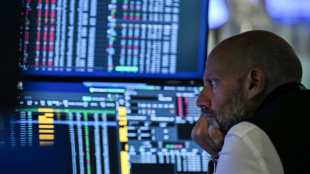 Tech selloff drags stocks down on AI bubble fears
Tech selloff drags stocks down on AI bubble fears
-
Blasts at Indonesia school mosque injure more than 50

-
 Contepomi says lead-in to Wales match a 'challenge' for Argentina
Contepomi says lead-in to Wales match a 'challenge' for Argentina
-
Greece woos US energy deals, as eco groups cry foul
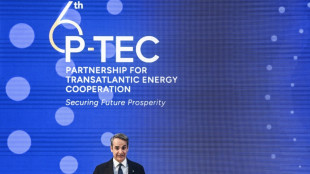
-
 Frank says Spurs supporting Udogie through 'terrible situation'
Frank says Spurs supporting Udogie through 'terrible situation'
-
MSF warns of missing civilians in Sudan's El-Fasher

-
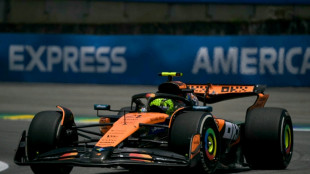 Norris on top as McLaren dominate opening Sao Paulo practice
Norris on top as McLaren dominate opening Sao Paulo practice
-
UN warns 'intensified hostilities' ahead in Sudan despite RSF backing truce plan

-
 Seven hospitalized after suspicious package opened at US base
Seven hospitalized after suspicious package opened at US base
-
Guardiola says 'numbers are insane' as he reaches 1,000 games in charge
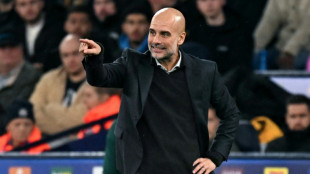
-
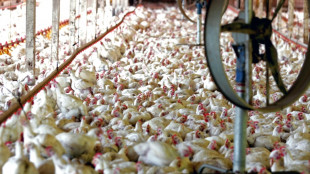 Brazil welcomes China lift of ban on poultry imports
Brazil welcomes China lift of ban on poultry imports
-
Scotland captain Tuipulotu bids for landmark win over All Blacks

-
 Woman convicted in UK of harassing Maddie McCann's parents
Woman convicted in UK of harassing Maddie McCann's parents
-
Tanzania charges more than 100 with treason over election protests
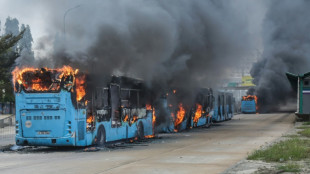
-
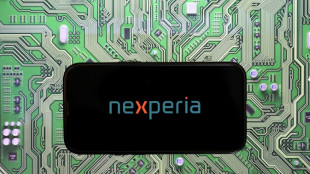 Nexperia chip exports resuming: German auto supplier
Nexperia chip exports resuming: German auto supplier
-
Genge warns England to beware 'nasty' Fiji at Twickenham

-
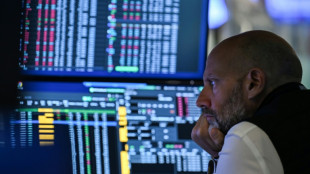 Stocks fall on renewed AI bubble fears
Stocks fall on renewed AI bubble fears
-
UK grandmother on Indonesia death row arrives back in London

-
 Spanish star Rosalia reaches for divine in new album
Spanish star Rosalia reaches for divine in new album
-
Portugal's Mendes out injured as Neves returns for World Cup qualifiers
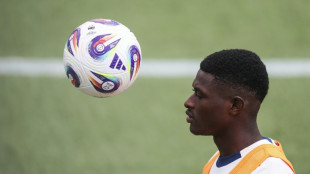
-
 Afghan-Pakistan peace talks push ahead after border clashes
Afghan-Pakistan peace talks push ahead after border clashes
-
Fleetwood in tie for lead at halfway stage in Abu Dhabi


Analysts warn US could be handing chip market to China
As the Trump administration attempts to choke off exports of strategically important computer chips to China, experts say the effort might well backfire, fueling innovation at Chinese firms that could help them seize the world semiconductor market.
"What's actually happening is that the US government right now is handing China a big win as it tries to get their own chip business going," said Jack Gold, principal analyst at J.Gold associates.
"Once they're competitive," he told AFP, "they'll start selling around the world and people will buy their chips."
When that happens, he added, it will be difficult for US chip makers to reclaim lost market share.
Silicon Valley semiconductor star Nvidia and its US rival Advanced Micro Devices (AMD) expect big financial hits from new US licensing requirements for semiconductors exported to China, they notified regulators this week.
Nvidia expects the new rules to cost it $5.5 billion, while AMD forecast it could sap as much as $800 million from the company's bottom line, according to filings with the US Securities and Exchange Commission (SEC).
Administration officials told Nvidia it must obtain licenses to export its H20 chips to China because of concerns they may be used in supercomputers there, the company said.
The United States had already restricted exports to China, the world's biggest buyer of chips, of Nvidia's most sophisticated graphics processing units (GPUs), designed to power top-end artificial intelligence models.
Nvidia essentially developed the H20 chip for the Chinese market, aiming to maximize performance while meeting previous US export rules, but the new licensing requirements pose a roadblock, according to Gold.
For AMD, the new US export control measure applies to its MI308 GPUs, which are designed for high-performance applications like gaming and artificial intelligence, it said in a filing.
It noted that there is no guarantee licenses for sales to China will be granted.
- Opportunity for China? -
Independent tech analyst Rob Enderle predicted Chinese chip makers -- likely led by the huge Huawei corporation -- will ramp up efforts to snatch the lead in the market.
"It's going to be a godsend for China as they spin up their own microprocessor business," Enderle said of the tightened US export rules.
"This will be a really quick way to hand over US leadership in microprocessors and GPUs."
The Chinese government has ample resources and motivation to bolster its chip industry, according to Gold.
He said while US President Donald Trump might think he can "bully people" to achieve his objectives, "the worldwide economy is not like that."
Instead, Trump's tariffs have alienated allies, increasing their incentive to turn to China for chips, the analyst said.
"Across the board, this is going to create real problems for US companies competitively," Enderle said.
"Companies located overseas are suddenly going to be in much better shape to compete."
Nvidia chief executive Jensen Huang has said publicly that the AI chip powerhouse can comply with the new US requirements without sacrificing technological progress, adding that nothing will stop the global advancement of artificial intelligence.
"Nvidia is one of the most important pieces in this (US) chess game with China," Wedbush analyst Dan Ives said in a note to investors.
"The Trump administration knows there is one chip and company fueling the AI Revolution and it's Nvidia," he said, and so it placed "a 'Do Not Enter' sign in front of China" to slow its progress.
Ives warned, however, that the chip wars are not over. He expects "more punches to be thrown by both sides."
R.Buehler--VB

